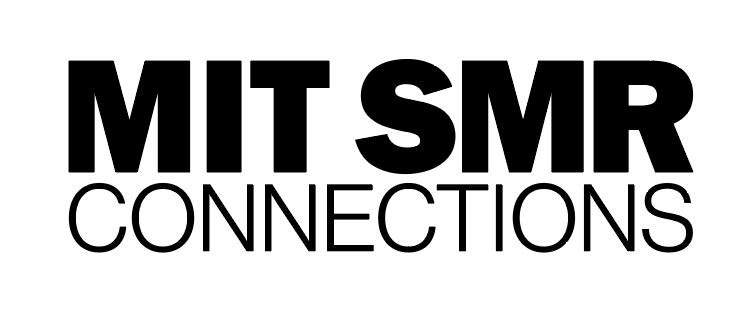Technological advancements, demographic shifts in the workforce and informed customers have played a major role in transforming the modern workplace for the future of work. And, where once it seemed as if every company was trying to resolve how to reach millennials, they are now well entrenched in the workforce and are moving up into management positions. It’s time to focus on the next generation; Gen Z.
This upcoming generation is poised to make a huge impact on the future of work. While millennials will make up 75% of the workforce by 20251, Generation Z will soon surpass millennials as the most populous, and diverse, generation on earth2. Understanding what matters to Gen Z, and transforming workspaces, workflows and workstyles accordingly, will be critical to the success of companies in the future.
Who is Gen Z?
Definitions of Generation Z vary slightly, but they are mostly defined as people born between 1995 and the present. Born after millennials, they are the kids that grew up post-9/11, through the height of the recession. They are now becoming significant as the oldest members begin to move into the workforce and make an impact on the workplace.
There are many aspects that make this group unique, such as being the first generation to be fully raised in the era of smartphones and social media. In fact, they are technology innate and it’s their main form of communication and gathering information. This instant access to information has also benefitted them by training them to process it at fast speeds.
Also uniquely affecting Gen Z, beyond technology, is growing up during the recession they witnessed their parents out of work and go through tight times, effectively shaping their views on work and money matters.
What makes Gen Z unique
- They are tech innate, where millennials are just tech savvy
- They are determined to plan ahead
- They are more financially aware and crave financial security
- They are self-reliant and independent
- They are dedicated to work and want job security
- They are outspoken
- They are pragmatic and more mature than previous generations
- They value a college education and will be the most educated, yet indebted generation
What Gen Z wants from a workplace
Some companies have already begun transforming for the future of work with more remote workers, converting meeting spaces and adding more technology. But that may not be enough to attract Gen Z. As they begin to enter the job pool, companies that not only understand what they are looking for, but incorporate those expectations and preferences are better poised for success.
What is Gen Z looking for in a company? Remember, they grew up watching their parents struggle through the recession. So, while they are looking for diverse, entrepreneur type opportunities like millennials, Gen Z places emphasis on safety and security and looks for those opportunities in a stable, established company as opposed to startups.
In addition to stability, they want flexibility in where and when they work, at a company that offers work-life balance. Gen Z also envisions working in a transparent environment that embraces all styles of communication. For example, if their boss is a Baby Boomer, they expect that person to not only have open lines of communications and accommodate Gen Z’s workstyle, but also the preferences and needs of Gen X and millennials.
Unique from other generations, Gen Z also expects the employees of a company to look like them: diverse. Companies that resemble the diversity of this generation are much more likely to attract them to their workforce.
Lastly, Gen Z looks for companies that are good global citizens. However, they want more than a paragraph of company values on a corporate website, they expect to see real action and social impact. Actions will speak louder than words.
How to prepare for Gen Z
Understanding what’s important to Gen Z in the workplace and how companies respond will greatly affect the future of work. To remain competitive, and attract Gen Z, companies must transform their mindset to accept new and varied workstyles, as well as redefined physical workspaces and business process workflows.
Gen Z craves flexibility and expects to use technology daily in their work life for completing projects and collaboration. They also expect an environment that encourages communication between all generations in the workplace, including redesigned meeting areas and huddles spaces that inspire creativity. To attract Gen Z, companies must modernize roles and shift to a culture and workspace built for collaboration among all generations.
In addition, they are looking for flexibility of when and where they work. Companies that offer best-in-class technology tools that strengthen team collaboration, as well as make working remotely seamless will have an advantage.
Companies will also need to rethink how the work gets done. Gen Z doesn’t want to be defined by one role. New positions need to be redesigned to match skills to projects. This allows the work to be tailored to a person by tapping into their expertise, enabling not only personalization but the ability to quickly form teams of required skills, regardless of where they are located, needed for a project.
While dedicated to working, Gen Z also wants to learn and know they are making a difference. Remember, while they want flexibility, stability is also important. This means developing robust training, offering clear career paths and leadership programs to keep workers engaged and productive.
Closing
As Generation Z begins to enter the workforce, it helps to understand who they are and how they differ from previous generations. This diverse generation is a combination of other generations, wanting a stable job with all the flexibility of working where and when they want.
To succeed, employers will not only need to change their workplaces for better collaboration and keep up with emerging technology to improve workflows, but they will need to embrace all workstyles and change their mindset of how work gets done.
The workplace is now quad-generational, and Generation Z, with their unique perspective on careers and success, is set to make a big impact on the future of work and a positive change for all workers.
EY, Building a better working world, “The future of work is changing. Will your workforce be ready?” 2017. https://www.ey.com/Publication/vwLUAssets/The_future_of_work_is_changing/$FILE/ey-the-future-of-work-is-changing-will-your-workforce-be-ready.pdf
Deloitte, “Understanding Generation Z in the Workplace” 2019. https://www2.deloitte.com/us/en/pages/consumer-business/articles/understanding-generation-z-in-the-workplace.html





